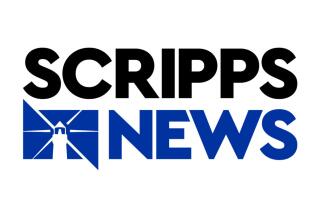No C-SPAN Is Bad News for L.A. Viewers
- Share via
As one cable network, TNN, unveils its new half-hour series of tabloid fodder “The Conspiracy Zone,” the real conspiracy in Los Angeles may be the ongoing threat to a well-informed citizenry.
Last week, C-SPAN aired a weeklong special series reviewing the causes and consequences of the Enron bankruptcy, the largest in U.S. history. Trouble is that about 400,000 homes in the Los Angeles area whose cable company is Adelphia Communications didn’t have the option of watching these programs when they re-aired in the heart of the West Coast prime-time hours.
On Jan. 1, Adelphia dropped C-SPAN and C-SPAN 2 from its prime-time schedule in order to add two new commercial broadcast stations to its lineup. Adelphia’s explanation, that it was forced to add these stations as part of an FCC-mandated “must carry” rule, means little to those of us whose refrain is “thank God for C-SPAN.”
Adelphia has promised to reinstate C-SPAN in a “timely” fashion, which means at least a month after the Enron special. But missing the Enron series in prime time is just the beginning. The nation remains at war in Afghanistan, important briefings on national security flow out of our nation’s capital almost hourly, and a national mid-term election year has begun. It is hard to imagine a more critical time in our country’s history for unfettered access to policy debates and call-in programs that feature “real” citizen-callers, instead of spinning pundits and paid analysts. Rather than maintain that access, Adelphia has short-circuited it in the nation’s second-largest media market.
With its decision this month to cut back C-SPAN, Adelphia brings into question any claim it might make of being a “responsible corporate citizen.” The message, instead, that Adelphia sends to L.A. residents is that C-SPAN, with its unique contribution to educating citizens, is expendable. The nation, or at least 400,000 cable subscribers in greater Los Angeles, can just do without serious information in a time of great national consequence.
A quick glance at Adelphia’s station lineup reveals what a troubling decision this is. Local viewers can browse multiple shopping channels, watch endless infomercials, but at 7 each evening they can forget about seeing the U.S. Senate, briefings by the secretary of Defense, footage from the campaign trail, public policy forums, author readings on the weekend “BookTV” and any of the other public affairs events C-SPAN distributes to citizens every day.
Perhaps one shouldn’t single out Adelphia. Its decision to cut back C-SPAN is just a sign of a growing trend in prime-time television lineups, fast becoming the exclusive domain of the corporate sponsor. We the viewers, with our “eyeballs for sale,” are being brokered between television networks and the major advertisers who are losing all scruples about where and when to embed market messages. It’s not enough to take a break or channel-surf during a commercial. Now advertisers and marketers seek to reach us in a seamless environment known as advertainment.
C-SPAN, with its advertising-free programming, is a definite threat to the embedded marketing concept of television. A place where citizens can gather in a commercial-free zone is fast becoming obsolete. And once it’s gone, try getting it back.
The joke about C-SPAN is that “it dares to be boring,” as if watching educational and public affairs content is like watching grass grow. It’s true that there is an element of the snooze factor in watching some policy briefings. I even tell my students that C-SPAN allows one to get in touch with your inner nerd.
The real joke, however, may be on those of us who continue to believe that a well-informed citizenry is both needed and wanted. It would seem that the American public, as Walter Lippmann projected, is a phantom, replaced by a demographic and market share.
Here’s a proposal. Let’s call it Coca-Cola C-SPAN and show members of Congress sipping products of their soft drink sponsor. McDonnell Douglas could bring Defense Secretary Donald Rumsfeld’s briefings to us. The advertising possibilities are endless.
*
Nancy Snow, who admits to having a crush on C-SPAN founder Brian Lamb, teaches at USC’s Annenberg School for Communication. She can be reached at nsnow@usc.edu.
More to Read
The biggest entertainment stories
Get our big stories about Hollywood, film, television, music, arts, culture and more right in your inbox as soon as they publish.
You may occasionally receive promotional content from the Los Angeles Times.










